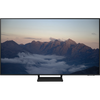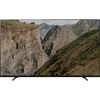A comparison of specs, key information, reviews, and best pricing from top retailers
Last updated -- hours ago | Report incorrect information
What we think

The PerfectRec TV team Learn more
Updated January 12, 2024·
The Samsung Q70A is less expensive and might fit within a tighter budget, providing a good balance of features for its price. However, it doesn't deliver the same level of picture quality as the Sony A80J, especially in terms of contrast and black levels due to its LCD technology. Your decision should weigh financial considerations against your desire for the highest quality viewing experience. Give Feedback
this description is based on the product variant with some specs and product variant with some specs. At the time of writing, the variant with some specs cost some dollars and the variant with some specs cost some dollars.
Advantages of the Samsung Q70A (LCD)
- The Samsung Q70A (LCD) has no clear advantages over the Sony A80J (OLED).
Advantages of the Sony A80J (OLED)
- Excellent for dark room
- Very good for gaming
- Excellent for movies & TV
- Excellent for sports
- Excellent for news, talk, & other TV
- Very good for use as monitor
- Best in class for upscaling
- Best in class motion processing
- Very good viewing angle
- Very good reflections
Key differences
Picture Quality
7.2
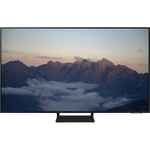
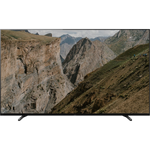
8.7
8.21/10
CONTRAST
10.00/10
7.0/10
COLOR VOLUME SCORE
7.5/10
LED
PANEL TYPE
WOLED
VA
PANEL SUB-TYPE
WBC
The Sony A80J (OLED) has very good picture quality, while the Samsung Q70A (LCD) has good picture quality.
Movies & TV
6.4


9.1
8.21/10
CONTRAST
10.00/10
6.8/10
BLACK UNIFORMITY
10.0/10
7.5/10
UPSCALING
10.0/10
Yes
HDR10 SUPPORT
Yes
Yes
HDR10+ SUPPORT
No
No
DOLBY VISION SUPPORT
Yes
The Sony A80J (OLED) is excellent for movies & TV, while the Samsung Q70A (LCD) is only fair.
Sports
6.7


9.0
8.0/10
MOTION PROCESSING
10.0/10
120Hz
REFRESH RATE
120Hz
10.0/10
INPUT LAG SCORE
7.3/10
7.5/10
UPSCALING
10.0/10
8.6/10
SDR BRIGHTNESS SCORE
7.2/10
Yes
HLG SUPPORT
Yes
The Sony A80J (OLED) is excellent for sports, while the Samsung Q70A (LCD) is only fair.
The Samsung Q70A has a poor reflections handling, limiting its performance in bright rooms, and its viewing angles are only fair, which could affect the view from off-center positions during sports watching. In contrast, the Sony A80J boasts very good reflections handling and excellent viewing angles, ensuring a clear and consistent image for sports across various seating positions and lighting conditions.
Gaming
7.7


8.8
8.0/10
RESPONSE TIME SCORE
9.4/10
10.0/10
INPUT LAG SCORE
7.3/10
8.0/10
MOTION PROCESSING
10.0/10
0.0/100
GAMING LOCAL DIMMING
100.0/100
7.3/10
GAME HDR BRIGHTNESS SCORE
7.2/10
The Sony A80J (OLED) is very good for gaming, while the Samsung Q70A (LCD) is good.
The Sony A80J OLED has an excellent response time which means fast-moving scenes look sharper, and it has a good input lag score, desirable for quicker reaction times in gaming. By comparison, the Samsung Q70A LCD also has a very good response time but is superior in terms of input lag, offering the best experience for gaming where timing is critical.
News, Talk, & Other TV
7.6


9.0
8.6/10
SDR BRIGHTNESS SCORE
7.2/10
7.5/10
UPSCALING
10.0/10
The Sony A80J (OLED) is excellent for news, talk, & other TV, while the Samsung Q70A (LCD) is good.
The Samsung Q70A features very good upscaling and SDR brightness, making it a solid performer for watching news and regular TV programs, however, it lacks local dimming which can affect contrast quality. The Sony A80J, on the other hand, provides excellent upscaling with good SDR brightness, and benefits from superior contrast and colors out of the box due to its OLED display, enhancing the viewing experience significantly for similar content.
Cost
$948


$1,698
$0
$500
$1,000
$1,500
$2,000
$2,500
$3,000
The Samsung Q70A (LCD) has a price of $948 and the Sony A80J (OLED) costs $1,698.
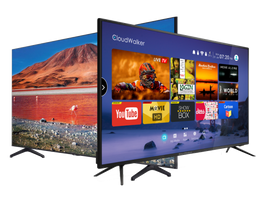
Let Us Help Find Your Perfect TV
Find your new TV
Key similarities
Cartoons & Animation
8.2


8.6
7.1/10
COLOR GAMUT SCORE
8.0/10
7.0/10
COLOR VOLUME SCORE
7.5/10
8.6/10
SDR BRIGHTNESS SCORE
7.2/10
8.5/10
COLORS OUT OF THE BOX SCORE
8.5/10
6.0/10
GRAY UNIFORMITY
9.8/10
The Sony A80J (OLED) and Samsung Q70A (LCD) are both very good for cartoons & animation.
The Samsung Q70A has excellent 'Colors Out of the Box' which makes for vibrant and accurate animations with a good 'Color Gamut', ensuring a wide range of shades, although the 'Color Volume' is just good, limiting the depth of colors in certain settings. The Sony A80J, on the other hand, also has excellent 'Colors Out of the Box' and a slightly better 'Color Gamut', which allows it to display a more precise range of colors for animations, and while its 'Color Volume' is also marked as good, its superior contrast due to OLED technology enhances the overall viewing experience.
Bright Room
7.4


7.2
5.3/10
VIEWING ANGLE
8.0/10
8.6/10
SDR BRIGHTNESS SCORE
7.2/10
7.2/10
HDR BRIGHTNESS SCORE
7.0/10
5.9/10
REFLECTIONS SCORE
8.8/10
The Samsung Q70A (LCD) and Sony A80J (OLED) are both good for bright room.
The Samsung Q70A (LCD) has very good SDR and HDR brightness and poor reflection handling, making it suitable for bright rooms as long as glare isn’t a major concern. The Sony A80J (OLED) handles reflections very well and offers good SDR and HDR brightness, but might not be as bright as some LCDs, making it a strong choice for bright rooms where reflection handling is a priority.
Give feedback
We’re constantly working to improve.
How the Samsung Q70A (LCD) and the Sony A80J (OLED) compare to other TVs
Spec Comparison
| Samsung Q70A (LCD) | Sony A80J (OLED) |
GENERAL | |||
|---|---|---|---|
| Price | |||
$948 | $1,698 | ||
Brand | |||
Brand | Samsung | Sony | |
Release Date | |||
Release Date | March 2, 2021 | March 2, 2021 | |
Full name | |||
Full name | QN65Q70A | XR-65A80J | |
Screen Size | |||
Screen Size | 65" | 65" | |
Screen Resolution | |||
Screen Resolution | 4K | 4K | |
TV FEATURES | |||
|---|---|---|---|
Operating System | |||
Operating System | Tizen | Android TV | |
Sound Quality Score | |||
Sound Quality Score | 5.7/10 | 8/10 | |
NextGen Ready | |||
NextGen Ready | No | Yes | |
HDMI Ports | |||
HDMI Ports | 4 | 4 | |
Coax Ports | |||
Coax Ports | 1 | 1 | |
DISPLAY QUALITY SCORES | |||
|---|---|---|---|
Picture Quality Score | |||
Picture Quality Score | 7.2/10 | 8.7/10 | |
Bright Room Score | |||
Bright Room Score | 7.4/10 | 7.2/10 | |
Gaming Score | |||
Gaming Score | 7.8/10 | 8.9/10 | |
Movies & TV Score | |||
Movies & TV Score | 6.4/10 | 9.2/10 | |
Sports Score | |||
Sports Score | 6.7/10 | 9.1/10 | |
PHYSICAL | |||
|---|---|---|---|
Dimensions w/o Stand (H x W x D) | |||
Dimensions w/o Stand (H x W x D) | 32.8" x 57.2" x 1" | 32.9" x 57" x 2.1" | |
Dimensions with Stand (H x W) | |||
Dimensions with Stand (H x W) | 35.3" x 57.2" | 33.8" x 57" | |
Weight without Stand | |||
Weight without Stand | 46.1 lbs | 49.2 lbs | |
VESA Mount | |||
VESA Mount | 400 X 300 | 300 x 300 | |
DISPLAY | |||
|---|---|---|---|
Color Depth | |||
Color Depth | 10 bit | 10 bit | |
Black Frame Insertion | |||
Black Frame Insertion | Yes | Yes | |
Auto Low Latency Mode | |||
Auto Low Latency Mode | Yes | Yes | |
Contrast | |||
Contrast | 8.2/10 | 10/10 | |
Local Dimming | |||
Local Dimming | 2.5/10 | 10/10 | |
SOUND | |||
|---|---|---|---|
Speaker Setup | |||
Speaker Setup | 2.0 | 2.2 | |
Speaker Power | |||
Speaker Power | 20 W | 30 W | |
Dolby Atmos | |||
Dolby Atmos | Bypass only | Yes | |
DTS:X | |||
DTS:X | No | Up to DTS Digital Surround, Bypass only | |
Shopping
Sony A80J (OLED)
See more
Dig into reviews and images
Trusted Reviews
Kob Monney | July 2022
"For home cinema fans the Sony A80J puts in a talented HDR performance, while daytime TV viewers benefit from its impressive upscaling and motion processing. Whites are portrayed in a clean and bright manner and black levels are strong, making for a very satisfying and consistent HD upscale. The A80J’s motion processing is hugely impressive. The Sony A80J takes content at any resolution and makes it look great, its motion skills are class-leading and its HDR performance boasts plenty of detail, contrast and expressive colours."
Get a great deal on the Samsung Q70A (LCD) or the Sony A80J (OLED)
About Samsung
Samsung, a South Korean electronics manufacturer, holds the title of being the largest global TV vendor in terms of units sold. They offer a diverse lineup of TV products that cater to various budget ranges. A notable achievement in recent years is the development of Quantum Dots, a technology that enhances color reproduction, resulting in richer and more vibrant hues. Samsung TVs are well-regarded for their high manufacturing quality and user-friendly software, making them an excellent choice for consumers seeking an intuitive viewing experience.
About Sony
Sony stands as a highly experienced and widely trusted TV manufacturer, earning a reputation that surpasses all others. A Japanese company, Sony has been making TVs for far longs than it has been making Playstation game consoles. Sony's high-end TVs are often regarded as the ultimate choice for videophiles, representing the epitome of quality, albeit at a premium price point. Renowned for their advanced and precise motion handling, as well as their cutting-edge local dimming algorithms, Sony consistently delivers unparalleled performance in these areas. They include Google TV software with all their TV sets, which grants access to the largest selection of apps available and they also include Bravia Core which is a movie streaming platform specifically for Sony TVs that offers higher picture quality by using more bandwidth.
Give feedback
We're constantly perfecting our model
TV guides you might be interested in
More comparisons for you
FAQs
FAQs about TVs
Why trust us
This information was produced and vetted by the PerfectRec TVs team. We are a product research and recommendation organization that meticulously reviews and evaluates the latest TV information and makes it digestible for you.
By the numbers
385
TVs evaluated
33,110
TVs stats compiled
21
Proprietary TVs ratings developed
122,430
Recommendations made
18,365
Consumer hours saved
About the TV team
Joe Golden, Ph.D
CEO and TVs Editor
Joe is an entrepreneur and lifelong electronics enthusiast with a Ph.D in Economics from the University of Michigan.
Jason Lew
Staff Expert & Software Engineer
Jason is a staff expert and software engineer that has been making laptop recommendations for 7 years and moderates one of the largest laptop subreddits.
Chandradeep Chowdhury
Staff Expert & Software Engineer
Chandradeep is a staff expert and software engineer and expert in televisions and monitors. He’s been making monitor recommendations for ten years.
Jaime Roldán
TVs Expert
Jaime is a Colombia-based TV expert. He is an electronics engineer with 8 years of experience in the telecom sector and has been making TV recommendations for 12 years.
